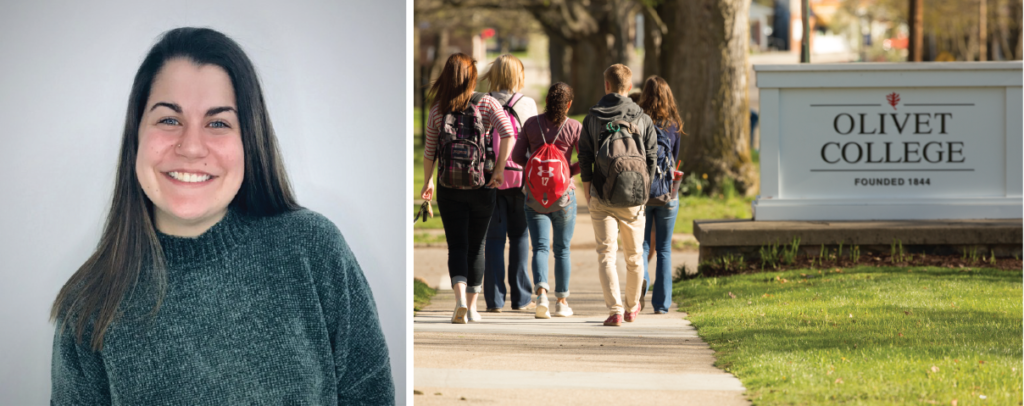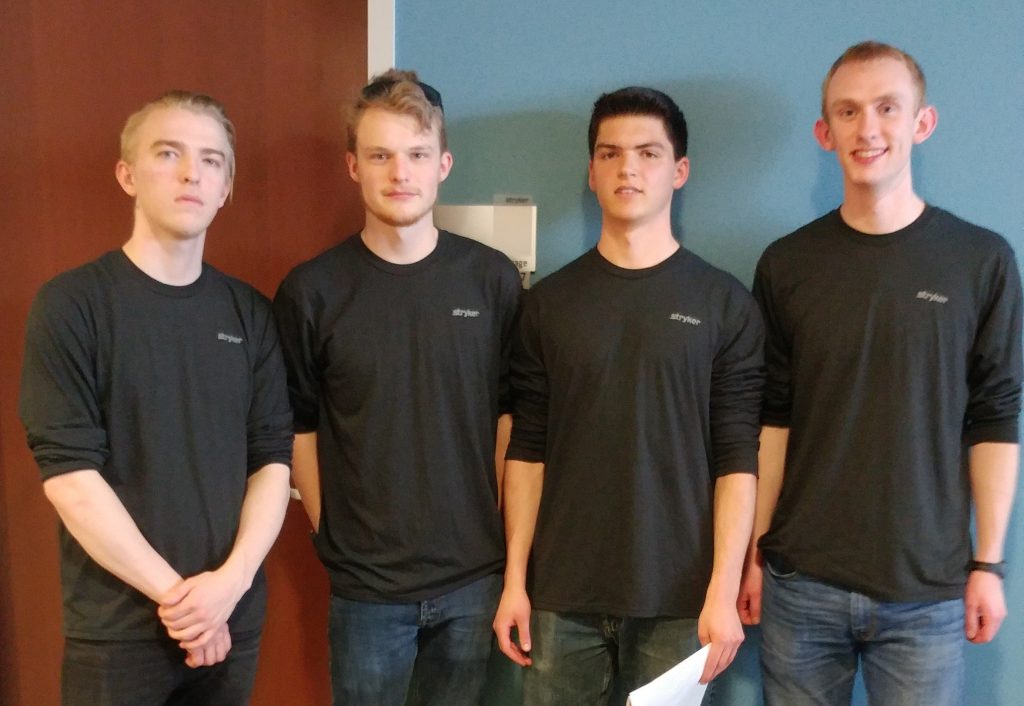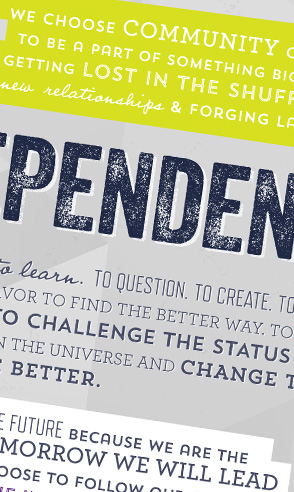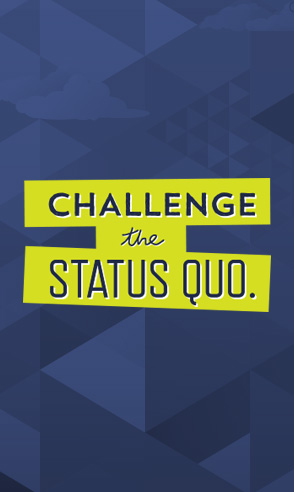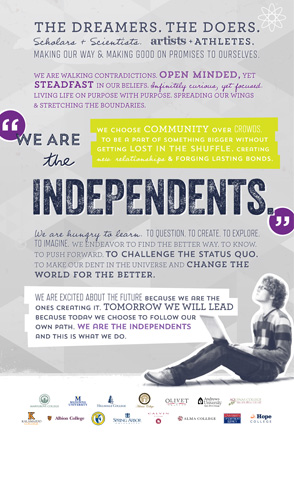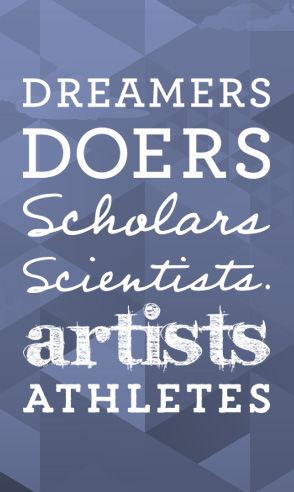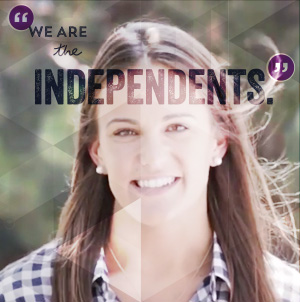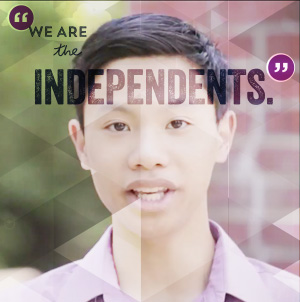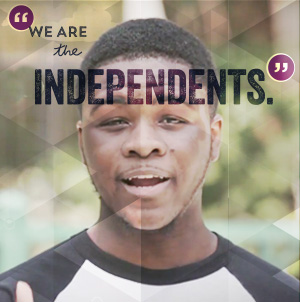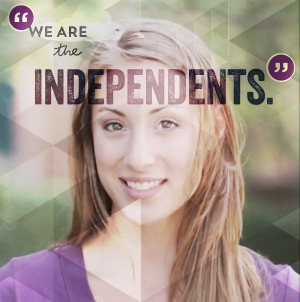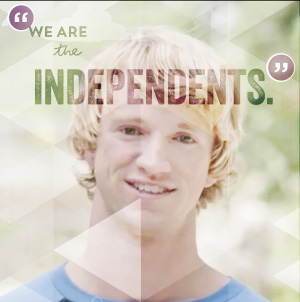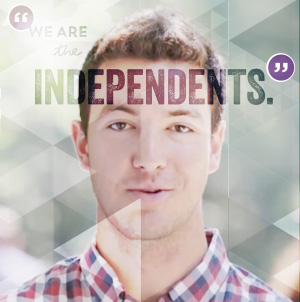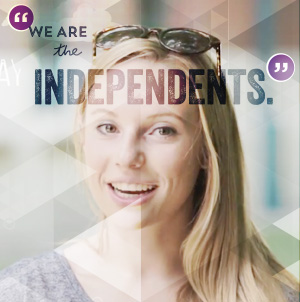Blog - Category: Career
Finding a Job After College
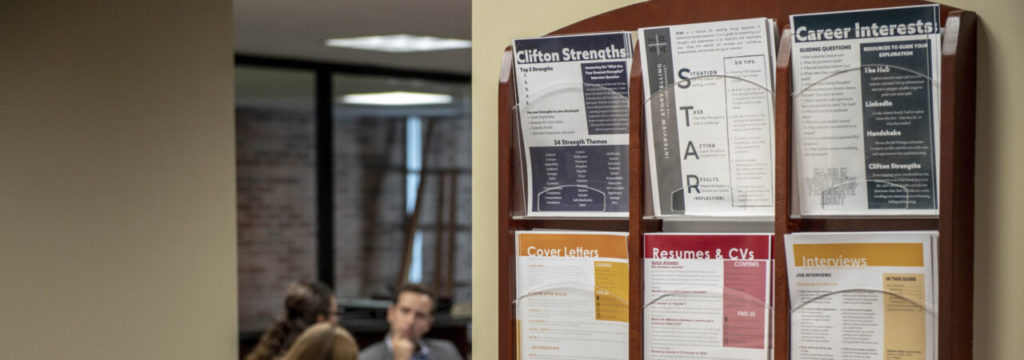
Written by Katrin Surkan
The post-college search for work can be nerve-wracking. After becoming expert students from the ages of 5 through 22, we are expected to know where to begin becoming experts in a world where we are paid for our skills. The four-ish years of college encourage young adults to find themselves, but then they are loosed to find a job. I am one of the lucky ones, coming into my senior year with a contract for post-college work. How did I find my job after college? Some luck, some preparation, and plenty of help.
I received some excellent advice all four years, and that helped me gather courage, experience, and the necessary information to take the next step in my search.
- Adapt your resume to the job description.
Make the resume easy to read. Fix formatting, keep all descriptions to one line, have a maximum of three descriptions per experience (remove the subjects and start with an active, exciting verb that ideally was in the job description itself), and sort by most recent date on top. Divide your resume into three or four categories that pertain to the job you are interested in (e.g. Experiences, Education, Extracurriculars, Leadership, Honors and Awards, Skills, Languages, Adventures, etc.). Keep it neat and to one page.
- Get started by doing something, anything!
Start early—freshman year—trying out (even volunteering for) jobs, opportunities, and internships that might interest you as a career. You may find that you hate something you thought you loved. Or that you could be paid for something you already do. Or you might fall in love with something that you had not known existed. Say yes to random little chances to help people, internship applications, on-campus jobs, talking to strangers, and anything that piques your interest. Better to know sooner rather than later what matters to you!
- Get an interview.
I was a horse tour guide in Iceland for a summer. Even though that has little to do with my potential careers, it makes interviewers more likely to invite me in to speak because they want to know more. I am sure you have done something that few people know much about, so get them to invite you in to ask questions by putting it noticeably on your resume or mentioning it in your email. It also helps to know what the person you are writing to (HR manager, intern coordinator) enjoys hobby-wise, so see if you can hunt down a hobby or two of theirs.
- Play to your strengths.
If you have excellent soft skills, go network and meet people. Apply for jobs that have you managing or dealing a lot with people. Look for opportunities to help or support others, as it will make them more likely to reciprocate—and jobs come from the most unlikely places! If you are introverted, focus on your skills and strengths in applications. Emphasize your abilities and expertise. Find a group that needs what you can offer.
- Be not afraid!
Employers were once young job seekers like you, and people are more helpful than you might expect. Ask questions, ask for the job, ask for an informational interview over LinkedIn or through Career Services. Talk to people you respect and to people who intimidate you. Chances are, you are just what they were looking for.
- Get an on-campus job.
Already, my freshman year, I began applying for on-campus jobs, practicing my cover letters, resumes, and informational interviews where little was on the line. By taking a small job on campus, I also acquired a reference for future applications! To help with my resume and letters, I met with Career Services and attended events that looked interesting, like the talk by an alumnus who graduated with a degree in philosophy and became a cybersecurity contractor. He inspired me to…
- Think beyond the major!
My degree is a mark of my interests rather than my skills. Yes, as an economics major, I can talk about supply and demand, but I could do anything with it!
Some alumni who have gone on to do fantastically interesting careers are…
Phillip Wegmann, ’15, a political economy major, is a correspondent at the White House
Kelsey Brakel, ’12, a biology major, became a veterinary pathologist
Stephanie Benson, ’03, a Hillsdale student-athlete who started a restaurant in Mississippi
Rob Schlitts, ’06, a communications major, founded a phonathon company, Wilson-Bennett Technology
Margaret Handel, ’17, an English major, became a commercial mariner
Madeline Johnson, ’17, a philosophy major, became an urban planner
Lydia Hall, ’19, an English major, became an associate production editor
Alma Venture Program
Experience is everything. And Alma College is committed to making sure you have an opportunity to put what you learn in the classroom to work in a meaningful way. The College’s Center for Student Opportunity is committed to providing support services and access to practical experiences that enhance your education. In fact, the Alma Venture gives you the financial support to not just study your field, but experience it firsthand. As part of the Alma Commitment, the Alma Venture program provides up to $2,500 to offset the cost of your personalized experience.
Where will you Venture?
Your Alma Venture could take place on campus, or on the other side of the world. It could be credit-bearing—or not. The opportunities are endless!
You could travel abroad for an off-campus study program, see what it’s really like to work in your field through an internship, delve deep into a research project or, get hands-on clinical experience. Alma offers other experiential learning possibilities for students interested in leadership and service.
- See examples of the types of Alma Venture experiences you can pursue.
- View an overview of past experiences by academic area.
- Consider which type of experience is right for you and find YOUR Alma Venture.
The Alma Venture is another example of Alma College’s unwavering commitment to the success of their students and graduates. It’s the reason that Plaid Works!
A Student Perspective: Sometimes Second is the Perfect Place
According to Olivet College rising senior Rose Kemmerling, the perfect college fit is defined by a homey feeling and awesome supporters. For her, Olivet College fits that description to a T.
Second Family, Second Home
“I would encourage a student to attend Olivet College because it is not just a place, but also embodies a great feeling,” Rose said. “When I come back to campus after summer or Christmas break, I feel like I am at my home-away-from-home. It is hard to explain, but once you are on campus you can feel the family atmosphere and know that it is the place that you should be. The College is more than just the academic buildings, dorm rooms and the KC — it’s the people who become your second family.”
As a biology pre-medical major, member of the volleyball team, President’s Leadership Institute fellow and vice president of the Student-Athlete Advisory Committee (SAAC), Rose’s second family is comprised of her teammates, science professors and classmates.
“My relationships with professors at Olivet have helped shape me into the person I am today. Being a biology major with a pre-med focus, Organic Chemistry was one of the classes I had to take,” Rose explained. “I established a bond with Professor Susanne Lewis, Ph.D., because I was with her four times a week in addition to a lab on Tuesday nights and the extra time I spent in her office hours. I know that her door will always be open and that I can go to her when needed.
“I also know that my coach, Megan Merchant, is someone that I can go to. I have the chance to work with her as both a coach and SAAC faculty adviser, and I know that she wants to see me succeed. My athletic trainer, Kaitlin Sznajder, is someone who I know will always be there to encourage and support me — she was my rock when I got a concussion this season.
“I am lucky to have teammates, friends and a support system all wrapped up into one.”
Rose added that a very special member of her OC family and volleyball team is nine-year-old Lianna Shearer. Liana was recruited to the Comets from Team IMPACT, a nonprofit that connects children facing serious or chronic illnesses with college athletic teams. Lianna attends practices, games, team dinners and other events with the team. More importantly, Rose and the rest of the OC volleyball team are members of Lianna’s support system as she overcomes challenges related to cystic hygroma.
Class of 2020
While Rose’s undergraduate journey at Olivet is nearing its end, she says she’s not done building relationships and using those connections for good. Next up, she’s preparing for further studies that will help her enter the medical field.
“I have always known that I want to do something in the medical field,” Rose said. “This past summer I read an article about genetic counseling, and I knew that this career was perfect for me. Genetic counseling does not only allow me to help others, but it still allows me to be involved in the medical field and solving problems. My goal is to attend a two-year genetic counseling program after graduating from Olivet. I am preparing myself for my future career by shadowing genetic counselors, taking prerequisite courses for my program, adding a psychology minor, participating in crisis volunteering and studying for the GRE.”
With the support of her OC family, Rose has no doubt she’ll be able to achieve her goals.
“My experience as a Comet has helped shape me into the person, student and athlete I am today. I have gained life experiences and learned lessons that I will carry with me throughout my life,” she concluded.
Learn more about Olivet College by contacting the Office of Admissions at 800-456-7189 or admissions@olivetcollege.edu.
Hope College Formula Racing Team in Top 20 Percent Worldwide
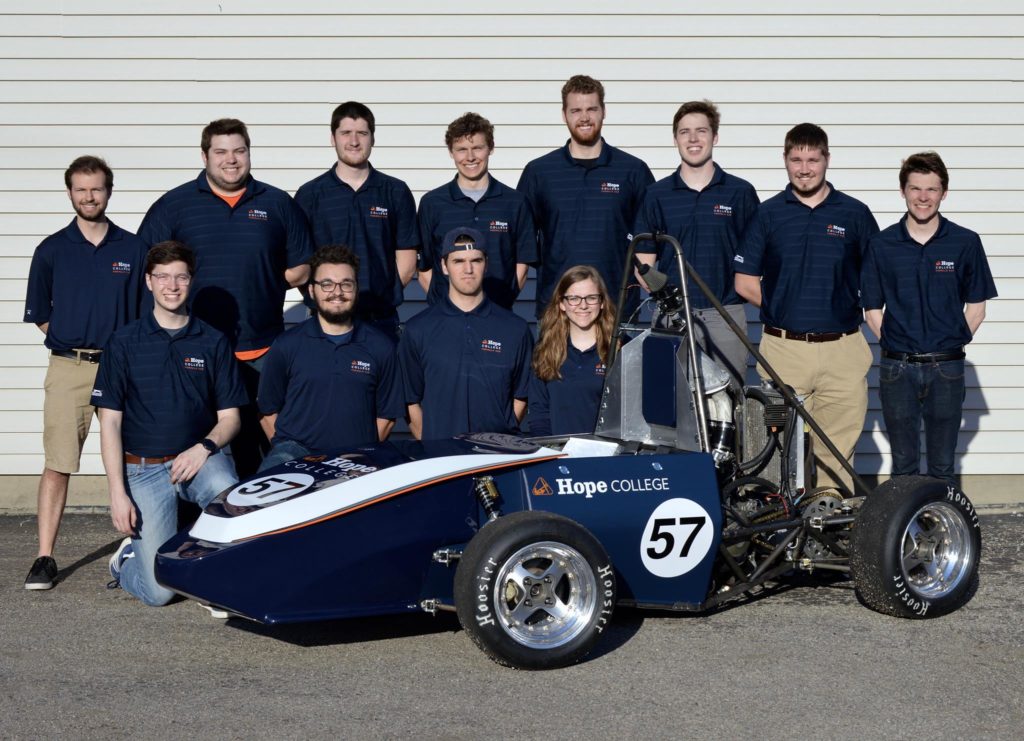 The student-run Hope College Formula Racing Team is in the top 20 percent worldwide in the FSAE rankings posted earlier this year.
The student-run Hope College Formula Racing Team is in the top 20 percent worldwide in the FSAE rankings posted earlier this year.
Hope College ranked 107th out of 601 teams globally, including 26th out of 145 teams from the United States. Most of the teams are from comprehensive or technical universities — first on the list, for example, is the Universitaet Stuttgart in Germany.
“This is momentous for not only our team but also for our school,” said freshman team member Austin Cortes of Gurnee, Illinois. “We are one of two liberal arts colleges in the competition, so we are a true underdog story.”
Looking forward, the team is preparing for this year’s competition at Michigan International Speedway, which will be held on May 8-11 with an estimated 120 teams participating.
Hope first participated in Formula SAE in 2010, competing with more than 100 teams from around the world at MIS. The college returned to MIS in 2016, and also competed at Lincoln, Nebraska, in 2018.
Hope’s team placed 76th out of 102 teams in 2010, winning the William C. Mitchell Rookie Award in 2010 for having achieved the highest overall score among first time teams, and finished 77th out of 115 teams in 2016. Hope also finished 11th in the international Formula SAE Lincoln 2018 competition in Nebraska out of 80 teams. Also in 2018, Hope finished first out of 10 Great Lakes FSAE teams at the 2018 Lawrence Tech Grand Prix, and had the 49th fastest time out of 1,375 entries in the SCCA Solo Nationals autocross held in Lincoln, Nebraska.
The concept behind Formula SAE is that a fictional manufacturing company has contracted a design team to develop a small Formula-style race car. The prototype car is to be evaluated for its potential as a production item. Each student team designs, builds and tests a prototype based on a series of rules whose purpose is to provide standards while promoting clever problem solving.
The Formula SAE competition is not just a race. Instead, the teams are evaluated in a series of static and dynamic events, including presentation, design, cost analysis, acceleration, cornering ability, maneuverability and handling, fuel economy and endurance.
The international Formula SAE organization provides a variety of design parameters within which the participants must work, but beyond that the teams make their own decisions. Some of the parts are pre-fabricated, like the 600cc Honda motorcycle engine that provides the power. Others — like the frame itself — have been developed by the group, starting with initial concept, and then moving through design and theoretical testing using the computer and ultimately to fabrication and construction.
Although it may seem that the team would be geared toward engineering majors, the Hope College Formula Racing Team is open to any student and other majors through the years have included communication, business, computer science, exercise science, management and religion.
How Michigan colleges and Google are Reinventing Classroom Learning

When Alma College Professor Anthony Collamati sat down with all the students in his winter semester Media Theory and Culture class for the first time, the course was almost over.
You read that right.
Collamati was part of a revolutionary pilot program led by the Michigan Colleges Alliance that allowed students at Alma, Albion and Calvin colleges to take courses at member campuses using video conferencing technology from Google and interactive 55-inch “jamboards” to communicate.
That means Collamati had seven students in a classroom at Alma, six Albion undergraduates dialed in from their campus and three from Calvin attending from Grand Rapids.
The collaboration between the Michigan Colleges Alliance — a group of 14 of Michigan’s best private colleges and universities working together to provide opportunities for students in and outside of the classrooms — Google, which donated technology, and Steelcase, which outfitted learning environments for optimal communication, is the first-of-its-kind nationally.
The idea behind the interactive multi-campus class sharing is to maximize limited resources and provide students wider learning opportunities, said Michigan Colleges Alliance President Dr. Bob Bartlett.
“Nothing like this is happening in the country other than right here,” Bartlett said recently to students and instructors involved in the pilot. “It’s cutting edge. You’re a part of something brand new and it’s happening right here in Michigan and with Michigan Colleges Alliance.”
“We’re on to something that is going to have a national scope. I think that’s pretty exciting.”
Students agreed with Bartlett’s assessment.
Nichole Brown, an Albion junior studying math, was part of Collamati’s class. She registered for the section specifically to experience and learn the technology. Brown said any initial skepticism ended with the interactive nature and excitement of being part of something new.
“This is opening up opportunity for students to take classes we’ve never had access to and to be a part of something that’s never been done,” Nichole said. “Technology has such a wide range of applications in other fields that learning it now will benefit me later.”
The pilot was structured around three classes that are unique to the school or typically have lower student registrations. Bartlett said the courses, “Earth, Art and the Environment” offered through Albion, “Visual Sociology” through Calvin, and Collamati’s, were chosen to highlight that the program could tackle demanding topics.
Collamati described building a close connection to and between the students despite the distance between the campuses. He and the students had to lean-in and engage each other, developing seminar-style robust discussions. Each class session felt like an event, Collamati said.
“It supports the type of personalized teaching that we value and know is most valuable,” Collamati said.
Collamati reflected on the recent lunch at which he physically met two-thirds of his students, saying it didn’t feel like their first encounter.
“I knew their personalities just like I would if they had been sitting in front of me the entire semester,” he said.
The colleges are studying how to improve the experience while planning to expand the partnership in Fall 2018 to include seven classes. Roman Williams, a Calvin College sociology professor who taught one of the three pilot classes, said the evaluation will help all parties understand the program’s strengths and how it can develop.
“We have a hunch that there are two entirely different experiences when you’re in class and when you’re video-conferenced in,” he said. “What are those differences? How did the student react and how did the professor adapt? I know, for me, the technology forced me to reinvent some of the ways I taught and I think it challenged everyone for the better.”
The second edition of the collaboration will focus on more traditional math and science courses to explore how the technology works in those arenas.
Bartlett praised the institutions for being innovative.
“Our presidents are really visionary and wanted to create something different, something exciting for students,” he said. “I’m amazed at the degree of collaboration that I’ve seen in this process. The way work gets done now is what our students are experiencing in the classroom. Everyone is working together to lay the tracks for our future.”
Michigan Colleges Alliance takes Second in Stryker Engineering Challenge.
Michigan Colleges Alliance (MCA) and its team of four engineering students finished second out of seven teams in the most recent Stryker Engineering Challenge. MCA competed against six teams from University of Notre Dame, Michigan Tech University, Western Michigan University, Miami University of Ohio, and Purdue University. Michigan Colleges Alliances beat out everyone, except for Michigan Tech University, who took first place in the competition.
Their team was a collective team of engineering students from two of their 14 schools, Andrews University and Calvin College. Levi Vande Kamp from Calvin College and Eric Anderson, Darrick Horton, and Justin Wiley from Andrews University made up the MCA team.
Gunnar Lovhoiden, a professor of engineering at Andrews University, supported the MCA team at the competition.
“I think our team worked really well together. Their design worked well and they represented MCA with honor. Second place—how about that,” says Lovhoiden.
This is the 8th year of the Stryker Engineering Challenge. The competition this year was held on March 22nd and 23rd.
Left to right: Darrick Horton (Andrews), Eric Anderson (Andrews), Justin Wiley (Andrews), Levi Vande Kamp (Calvin). (Photo by Gunnar Lovhoiden, professor of engineering)
Michigan independents fastest way to four-year degree for community college students
Congratulations. You have an associate degree. All that hard work has paid off.
Now what?
If you’re like many, you’re ready for more after community college. After all, a four-year degree is the best ticket to prosperity, with pay averaging $400 per week more than those with two-year degrees, according to federal statistics. Within 10 years, the gap is closer to $25,000 per year.
And Michigan’s 14 independent colleges and universities are the fastest way to a four-year degree. That’s because they make it easier to transfer and most of their students actually graduate in four years rather than five or more at big state schools.
“Students often think transferring from community college is far more difficult than it really is,” one admissions officer said. “It’s even easier at Michigan independent colleges and universities.”
Time was, transferring was difficult, in large part because credits wouldn’t transfer, wasting time and money. Not anymore.
Not only do Michigan independent colleges and universities have admissions staffers specially trained to work with community college transfer students, recent state law has taken the guesswork — and subjectivity — out of the process.
The state Legislature passed laws in 2012 to make more community college core classes transferrable at four-year institutions statewide, a system known as the Michigan Transfer Agreement.
Transfer students to Michigan independents hit the ground running. On average, the percentage of students who graduate from independents in four years is nearly double that of public institutions, not only saving them a year of tuition but giving them an extra year of earnings in their careers.
And speaking of cost, the independents are among the most affordable in the Midwest. That’s because more than 93 percent of students receive financial aid, lowering advertised tuition and bringing actual costs on par with many public universities.
That means our education is not only priceless. It’s affordable too — one of many differences with traditional universities.
Unlike big state schools, class sizes are small and taught by incredible faculty who help students forge their own path. They have a deep and committed network of alumni who help after graduation. It’s an experience that simply isn’t available at traditional universities.
Be bold. Be different. Go independent.
Michigan Independent Colleges Make it Easy to Transfer from Community Colleges
Community colleges are hot. Nationwide, some 7.3 million students attend them and, all told, they comprise nearly half of all undergraduates in the United States, according to the American Association of Community Colleges.
Too often, though, they’re a final destination instead of a starting point. That’s in part due to misperceptions that credits are difficult to transfer to four-year colleges to obtain a bachelor degree.
Like a lot of stereotypes, it’s far from the truth, especially at Michigan’s top 14 colleges and independents.
Some of the best schools in Michigan, the independents are also some of the most welcoming to community college students, with specially trained admissions counselors who make what can be an intimidating transition a smooth one.
The difference between an associate and bachelor is huge. Start with pay: It’s $400 per week higher, on average, for those with bachelor degrees, according to the Bureau of Labor Statistics.
And that’s just on average. The gap grows wider as careers progress. Within 10 years, the difference between an associate and bachelor pay grows to $25,000 per year on average.
And the Michigan independent colleges make it easier than ever to transfer. With that in mind, here are a few tips to consider.
- Plan ahead. Know which courses transfer for full credit. Check guides such as the ones operated by the Michigan Transfer Network or the Michigan Department of Education.
- Call ahead. Hook up with a counselor at one of the Michigan Colleges Alliance member colleges and universities. If you are early in your community college career, they can offer advice on classes to take, which to avoid and how to ease transfers.
- Get ahead. Meet regularly with advisers, keep them informed of transfer plans and make sure they are in touch their counterparts at transfer institutions. They get paid whether you use them or not. Use them.
No doubt. Transferring is a big endeavor. But it’s well worth it and will change your life for the better.
That’s because Michigan’s top 14 independent colleges are national leaders in education that help students chart a path to rewarding careers.
With low class sizes and award-winning faculty, the schools are proud that students forge lifelong bonds with professors.
Often comparable in price to public institutions, the independents boast higher four-year graduation rates for a truly unique and affordable experience.
Be bold. Be different. Go independent.
Marygrove College Offers New Program to Improve Police Relations
These are tense times. Snipers are killing police. Unarmed motorists are dying at the hands of police. Common ground between law enforcement and African Americans can seem elusive.
The answer, as it always does, begins with education. And as they always have, Michigan’s 15 independent colleges and universities are stepping forward to lead the dialogue toward solutions.
This week, Marygrove College announced a new online bachelor of arts in criminal justice degree. What makes it unique is its approach.
Rather than focusing on punishment, it emphasizes what’s known as restorative justice, an approach that focuses on the needs of both victims and offenders and how crime affects community.
“In this time of crisis, where there is distrust between law enforcement and the community,” Marygrove College Provost Sally Welch recently told Hometown Life, “our institution is prepared to help bring about peace and reconciliation through its online bachelor of arts degree in criminal justice based on Restorative Justice principles.”
The program is aimed at working criminal justice professions and accepting applications for fall semester that starts Sept. 6.
The program’s intent is broader than simply preparing students for careers. It does that spectacularly. But its goal is to also change the mindset that perpetuates distrust between police and communities, taking a holistic approach to crime rather than simply locking people up.
Victim-centered, restorative justice gives victims and offenders the opportunity to take steps to repair harm to communities. Because crime isn’t simply an attack on individuals. It’s an affront to communities.
And community is at the core of Marygrove College and the other Michigan independents. Their mission is to lift all boats, preparing students for awesome careers and preparing them to help the world at large.
Community infuses everything about the independents. Unlike big schools, class sizes are small and taught by incredibly faculty who help students forge their own path.
Students form lifelong bonds with professors, as well as an impassioned, caring network of alumni who help after graduation.
And despite what you may have heard, independents are often less expensive and boast higher four-year graduation rates that big state schools.
Be bold. Be different. Go independent.
Unique Hope College Program Helps Bring Great Ideas to Life
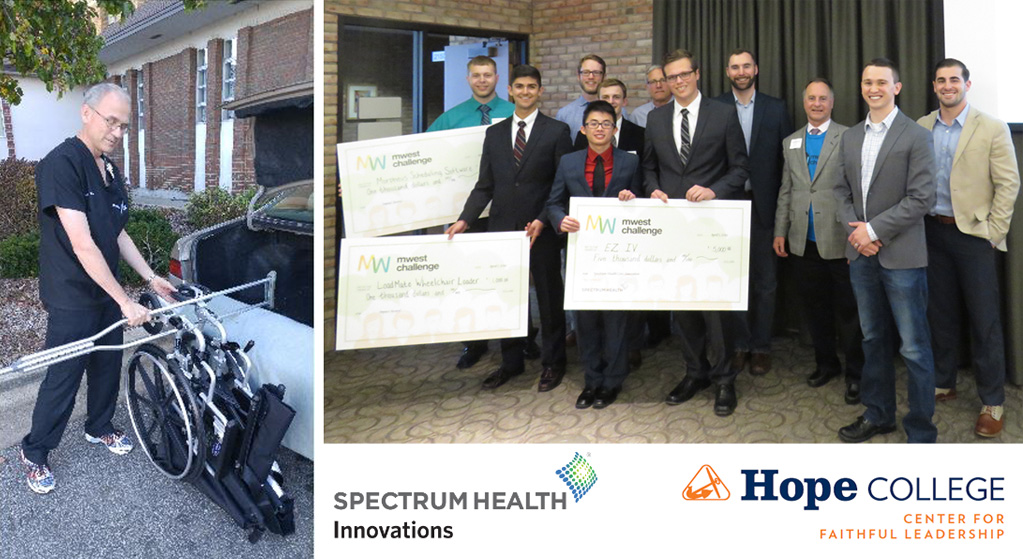
You never know what will spark your inspiration.
For Isaac Newton, it was an apple falling on his head. For physical therapist Joseph Ross, it was struggling to put a wheelchair into a car trunk and thinking, “wow, this is heavy.”
But inspiration is one thing and innovation is another. And Ross, who works at Spectrum Health Center, knew just where to turn to lighten the load.
After experimenting by using a crutch as a lever, Ross took his germ of an idea to Hope College’s Center for Faithful Leadership, an innovative program that pairs students with experts to bring awesome ideas to fruition.
A unique mentoring program, the center believes that college is as much about solving real-world problems as theoretical principles. It complements the classroom, pairs freshmen and sophomores with experts and stresses that productivity is integral to happiness.
In short, the program is about going to work.
So that’s what four Hope College students did with Ross, the therapist with a fuzzy idea.
The result is LoadMate, which looks like a pitchfork but makes heavy lifting a breeze
“I can’t say enough about how much I enjoyed working on this project,” Brenden Merriman, a biomedical engineering major who worked on the project.
“Spectrum Health was always extremely helpful whenever we ran into a question we couldn’t answer, and I think it’s a great program they have set up with Hope College students.”
The idea seems simple. But the real world applications could be huge. Ross wanted to develop the product to give freedom of movement back to some of his clients, who think twice about travel because of the prospect of lugging around a wheelchair.
“An elderly gentleman was able to load his wife’s wheelchair into the back of his car with one hand while holding his cane in the other,” Merriman said. “Seeing his excitement at being able to so easily do this simple task again for the first time in years was really touching.”
The product isn’t ready yet for market. But it won a $1,000 prize this year at MWest Challenge 2016, West Michigan’s regional business plan competition.
And it’s a great example of the unique spirit at Hope College and Michigan’s 15 independent colleges and universities. They’re proudly different, committed to human betterment and all about fostering lifelong bonds between their award-winning faculty and students.
All emphasize community over crowds and an ethos of cohesion that just doesn’t exist at big state schools.
Often less expensive than public institutions, the independents boast higher four-year graduation rates for a truly unique and affordable experience.
Be bold. Be different. Go independent.

